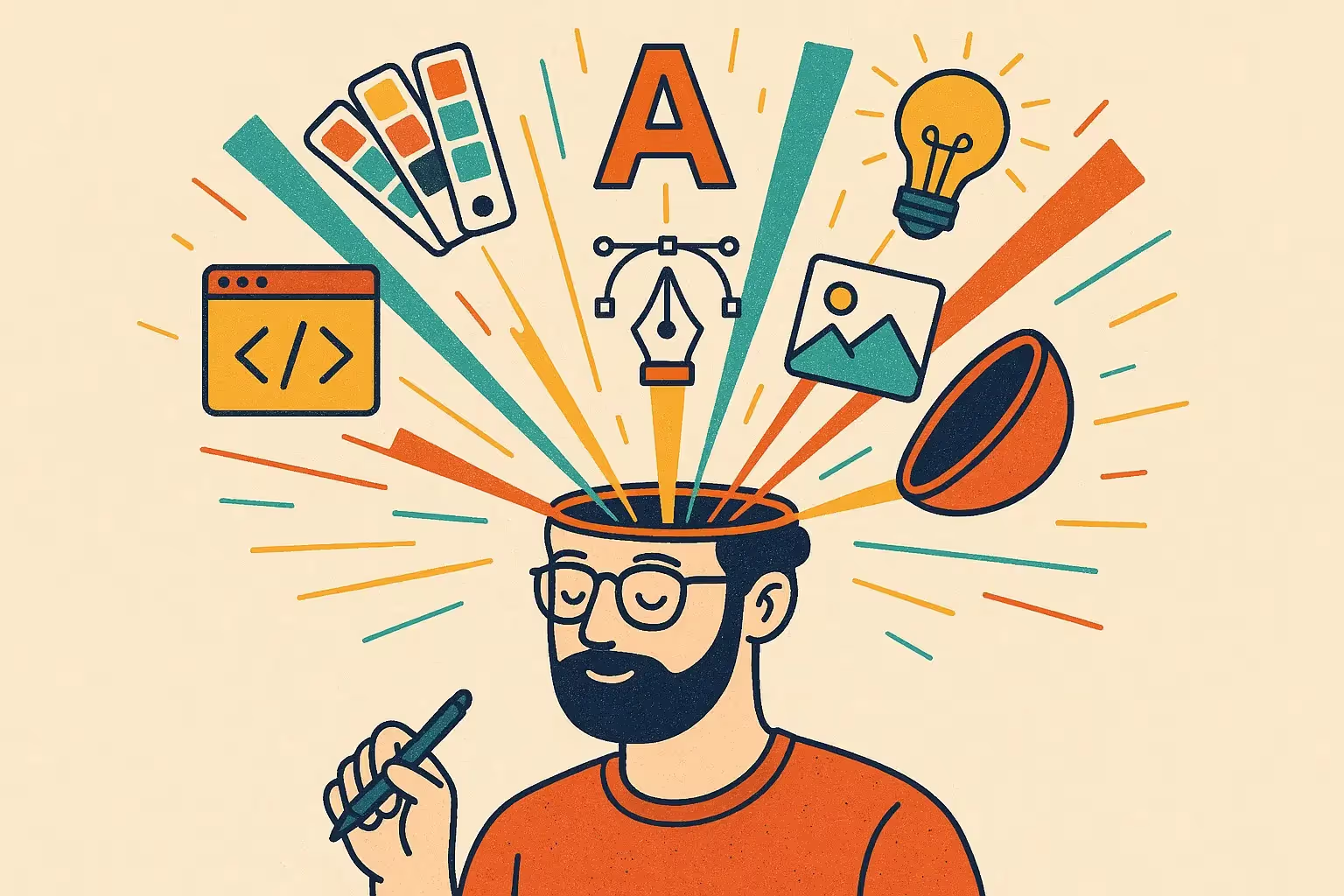
AI Tools 2025: Design with a Copilot – Not Under Fire
Reality Check 2025: Why AI tools are no longer optional
Design without AI? No longer realistic. 89% of UX designers rely on automation in 2025 – from components to visuals. Meanwhile, 46% of creatives show symptoms of anxiety or depression.
The question is no longer if we use AI, but how – and at what cost or benefit to our minds.
Less fire, more focus: How AI helps reduce mental overload
Handoffs, versioning, repetitive tweaks – they drain us. This is where AI steps in. Tools like UXPin Merge, Figma AI, or Firefly handle routine tasks and free up headspace for high-value decisions.
Done well, AI becomes a cognitive buffer: fewer context switches, less micro-stress, more clarity.
Hands-on, not hype: 3 AI workflows that actually work in 2025
UXPin Merge + AI Generator: Auto-builds components from code – ideal for SMEs with design systems.
Figma AI Plugins: Generate layouts, flows, buttons – for fast prototyping in lean teams.
Adobe Firefly: Turns text prompts into visual assets – for mockups, moodboards, or campaign visuals.
Each saves 25–40% of time while maintaining quality, according to recent benchmarks.
Quality needs intent: Where AI ends – and design begins
AI suggests. We decide. Strategy, empathy, context – still human.
Especially in Switzerland, where precision and design ethics run deep, the rule is simple: AI supports. It doesn't replace.
Closing thought: Less stress. Better systems. Lead with design.
AI can lighten the load – but only when used with purpose.
→ want learn more? We’d love to tell you more 🔥 let’s talk!
Who We Are
Greg.design is a creative studio that works with a network of creative professionals to provide solutions for Swiss start-ups and SMEs.
We support future-proof rebranding, tackle creative challenges and promote the development of digital products – from strategy to modular style guides.
Sound interesting? Then let's talk!
Latest posts

Test Before You Build: Why It's Never Been Easier to Validate Your Digital Product






